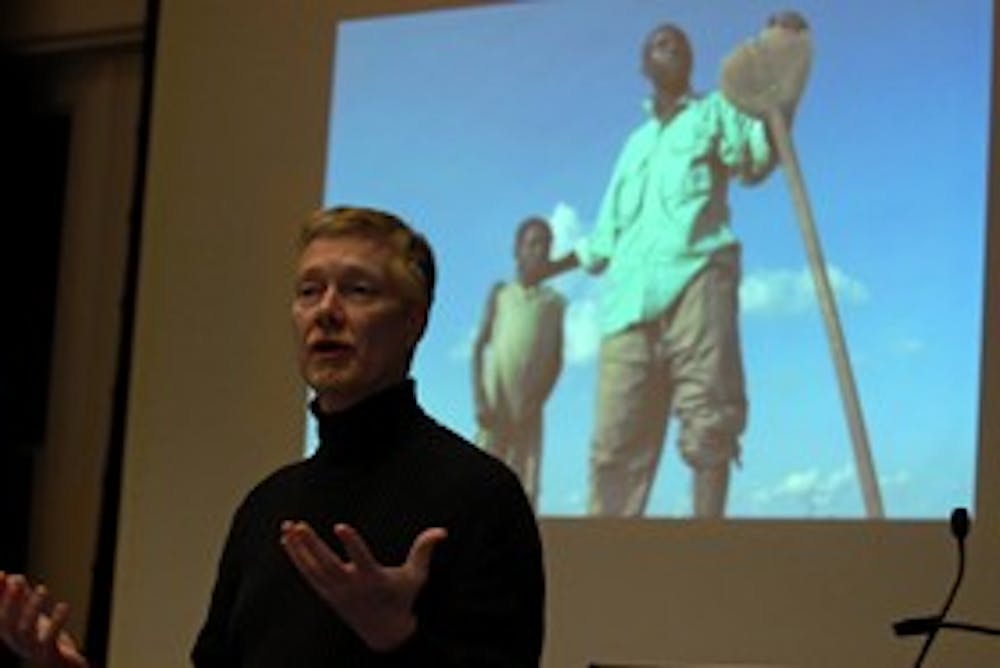
Those who thought slavery was eradicated in 1865 were forced to reconsider last night.
Free the Slaves President Kevin Bales discussed modern slavery and how to end it at an event titled “Child Slavery in the Global Economy.” The event was presented by Penn for UNICEF as part of Human Rights Week 2010.
Bales began by presenting facts. He said there are 27 million slaves today, more than at any time in history — despite the fact that slavery is now illegal.
Bales said most slaves he talked to had been tricked into slavery by someone posing a simple question: “Who needs a job?”
Free the Slaves is the U.S. sister organization of Anti-Slavery International, the world’s oldest human rights organization. The organization documents how people free themselves from slavery and uses research to present solutions for governments and international organizations working to end slavery.
The organization defines slaves as those forced to work without pay, under threat of violence and unable to walk away.
“The rule of thumb is, can this person walk away?” said Bales, clarifying the definition of the term. He said the word is often misused to dramatize other issues beyond the traditional definition of slavery.
“So you don’t think people working in a sweatshop are slaves?” asked a student in the audience, illustrating the often-blurry line between slavery and other labor-related issues. Bales declared that he is “not willing to let the word slavery be diluted.”
Bales clarified that Free the Slaves does not work by buying a slave’s freedom. Instead, they work with slaves to confront the slaveholder or give shelter to those who escape. The organization then provides education to freed slaves, reunites them with family and helps them develop skills to survive economically.
Bales said the cost of freeing slaves by providing such services is estimated at $10.8 billion over the next few decades. Because this is a relatively low figure, he said, the organization’s goal of eradicating slavery is economically feasible and attainable. He also remarked that reducing slavery would result in economic growth, since slaves are potential consumers.
Meghan Hussey, a College sophomore and Penn for UNICEF’s publicity chair, said the goal of the event was to “raise awareness on campus and inspire students to get involved.”
Esther Yu, a doctoral student in bioengineering, said she attended the event to find out what makes Free the Slaves different from other antislavery organizations. She said she wanted to know how students could get involved besides donating money.
The Daily Pennsylvanian is an independent, student-run newspaper. Please consider making a donation to support the coverage that shapes the University. Your generosity ensures a future of strong journalism at Penn.
DonatePlease note All comments are eligible for publication in The Daily Pennsylvanian.








